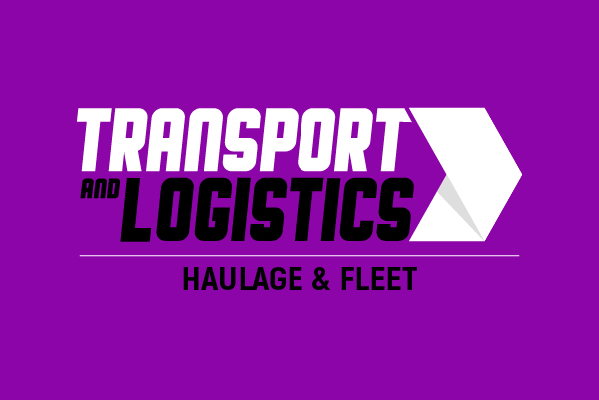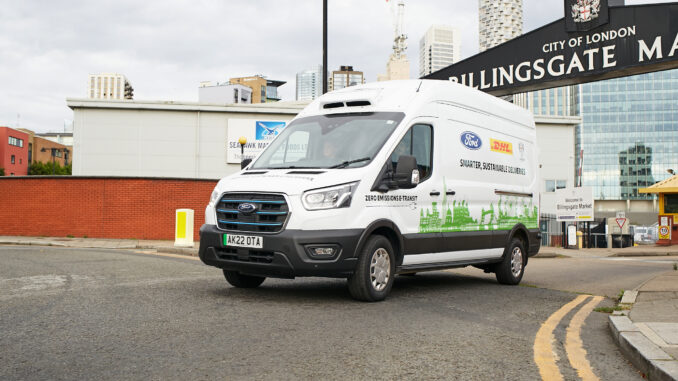In an attempt to explore ways to reduce traffic and improve air quality, DHL Supply Chain has conducted a sustainable delivery trial at London’s historic Billingsgate Market. Joined in this venture by the The City of London Corporation and Ford Pro, together with 40 traders, DHL aims to find out more about sustainable fuels and ways to reduce carbon emissions.
The trial was funded by the City Corporations, which owns and manages Billingsgate Market, and it is being run using DHL Supply Chain and Ford Pro vehicles, software and servicing support. The collaboration, which lasted for 18 weeks, has revealed significant opportunities to benefit both business and the environment.
There has been an estimated 37% in CO2 emissions compared with business as usual, with 949 fewer vehicle journeys on central London’s congested roads resulting in 23,961 fewer kilometres driven overall. This has also supported reduced costs and improved efficiencies for participating businesses.
“We’re delighted with the results of the trial, which support our approach to not only ‘burn clean’ through the use of sustainable alternative fuels and drivetrains, but ‘burn less’ by reducing the energy and fuel consumption of our operations,” said Tutu Akinkoye, GoGreen Lead for DHL Supply Chain UK and Ireland.
“We’re equally delighted with our engagement with the traders and partners, and the future direction that this strategic project offers customers of London’s wholesale markets: the wide choice of goods, the range of delivery options, and the more sustainable way in which products will reach the restaurants, wholesalers and consumers in and around the London area. Most exciting of all is the solution is replicable in other cities facing similar challenges, both in the UK and globally,” Tutu continued.
The vans used in this trial included seven refrigerated Ford Pro vehicles, together with an all-electric Ford E Transit, all equipped with sensors that were sending real-time data into Ford Pro Telematics. On top of that, the FORDLiive connected uptime system was supporting fleet managers to monitor the efficiency, condition and health of the vehicles.
This connected vehicle data helps Ford Fleet Management monitor and manage remaining oil life, AdBlue levels and tyre pressures to reduce the likelihood of unscheduled downtime. Fleet managers are also alerted to punctures or windscreen damage and can schedule required servicing and repairs around operating hours to minimise the impact on deliveries.
This trial is part of the City Corporation’s aim to reduce the environmental impact of its wholesale markets through innovation, including the planned relocation of Billingsgate, Smithfield and New Spitalfields markets to Dagenham Dock.
Transport and Logistics Magazine | The Home of Transport Industry News












